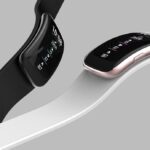Fitness trackers have become increasingly popular over the years, and many individuals have started using them to track their physical activity, sleep patterns, and other health metrics. But with the rising costs of healthcare, many individuals are looking for ways to save money, and one such option is using a flexible spending account (FSA) to pay for their fitness trackers. But are fitness trackers FSA eligible? In this article, we’ll take a closer look at the eligibility criteria for fitness trackers under FSA, the pros and cons of using FSA to pay for fitness trackers, and whether it’s a good option for you.

Important Points:
- Eligibility Criteria: Fitness trackers are eligible for FSA reimbursement only if they are deemed medically necessary. The Internal Revenue Service (IRS) defines medical necessity as an expense that is primarily for the prevention or alleviation of a medical condition. This means that if a fitness tracker is recommended by a healthcare provider to monitor a specific medical condition, it may be eligible for FSA reimbursement.
- Prescription Requirement: In some cases, a healthcare provider may need to write a prescription for the fitness tracker to be eligible for FSA reimbursement. The prescription should outline the medical necessity of the device and its intended use.
- Cost: The cost of a fitness tracker can vary greatly depending on the brand, features, and functionality. Some fitness trackers may be eligible for FSA reimbursement, while others may not. It’s important to check with your FSA provider to determine which devices are eligible for reimbursement and what documentation is required.
- FSA Contribution Limits: FSA contribution limits are set by the IRS each year, and in 2023, the contribution limit is $2,950 per individual. This means that the amount you can contribute to your FSA each year is limited, and you should plan your expenses accordingly.
- FSA Deadlines: FSA funds are typically “use-it-or-lose-it,” meaning that any funds not used by the end of the plan year are forfeited. However, some plans may allow for a grace period or carryover of funds. It’s important to check with your FSA provider to understand the deadlines for using your FSA funds.

FAQ’s:
What types of fitness trackers are eligible for FSA reimbursement?
Fitness trackers that are deemed medically necessary may be eligible for FSA reimbursement. This includes devices that are recommended by a healthcare provider to monitor a specific medical condition.
Do I need a prescription to be eligible for FSA reimbursement?
In some cases, a healthcare provider may need to write a prescription for the fitness tracker to be eligible for FSA reimbursement. The prescription should outline the medical necessity of the device and its intended use.
How much can I contribute to my FSA each year?
FSA contribution limits are set by the IRS each year, and in 2023, the contribution limit is $2,950 per individual.
What happens if I don’t use all of my FSA funds by the end of the plan year?
FSA funds are typically “use-it-or-lose-it,” meaning that any funds not used by the end of the plan year are forfeited. However, some plans may allow for a grace period or carryover of funds.
Can I use my FSA to pay for fitness classes or gym memberships?
No, FSA funds cannot be used to pay for fitness classes or gym memberships. However, they may be used to pay for medical expenses such as physical therapy or rehabilitation services.

Pro’s:
- Cost Savings: Using FSA funds to pay for a fitness tracker can help you save money on your healthcare expenses. FSA funds are tax-free, which means you won’t have to pay taxes on the amount you contribute to your FSA. This can translate to significant cost savings, especially if you use your fitness tracker to manage a specific medical condition. 2. Improved Health Outcomes: Fitness trackers can help you monitor your physical activity, sleep patterns, and other health metrics. This information can be used to make informed decisions about your health and can help you manage certain medical conditions more effectively. By using FSA funds to purchase a fitness tracker, you can improve your health outcomes and potentially reduce your healthcare costs in the long run.
- Convenience: Using FSA funds to pay for a fitness tracker is a convenient option, as it allows you to use pre-tax dollars to purchase a device that can help you manage your health. You can purchase the device online or in-store, and the reimbursement process is usually straightforward.
- Increased Motivation: Fitness trackers can be a great way to stay motivated and track your progress. By using FSA funds to purchase a fitness tracker, you may be more likely to stick to your fitness goals and achieve better health outcomes.
- Flexibility: FSA funds can be used to pay for a wide range of medical expenses, including fitness trackers. This means that you have more flexibility in how you use your FSA funds and can choose to use them to purchase a device that meets your specific needs.

Con’s:
- Limited Eligibility: Fitness trackers are only eligible for FSA reimbursement if they are deemed medically necessary. This means that not all fitness trackers may be eligible for reimbursement, and you may need a prescription from a healthcare provider to qualify.
- Contribution Limits: FSA contribution limits are set by the IRS each year, and in 2023, the contribution limit is $2,950 per individual. This means that the amount you can contribute to your FSA each year is limited, and you may need to plan your expenses accordingly.
- Use-It-Or-Lose-It: FSA funds are typically “use-it-or-lose-it,” meaning that any funds not used by the end of the plan year are forfeited. This can be a disadvantage if you don’t use all of your FSA funds or if you don’t need a fitness tracker for medical reasons.
- Administrative Hassles: Using FSA funds to pay for a fitness tracker can involve some administrative hassles, such as providing documentation to your FSA provider and tracking your expenses. This can be time-consuming and may deter some individuals from using FSA funds for this purpose.
- Limited Flexibility: FSA funds can only be used to pay for medical expenses, which means that you cannot use them to pay for fitness classes or gym memberships. This can be a disadvantage if you prefer to engage in group fitness activities or if you don’t need a fitness tracker for medical reasons.

Final Verdict:
Whether using FSA funds to pay for a fitness tracker is a good option for you depends on your individual circumstances. If you have a medical condition that requires you to monitor your physical activity, sleep patterns, or other health metrics, using FSA funds to purchase a fitness tracker can be a cost-effective and convenient option. However, if you don’t have a specific medical need for a fitness tracker or if you prefer to engage in other forms of physical activity, using FSA funds for this purpose may not be the best choice. Before making a decision, it’s important to consult with your healthcare provider and your FSA provider to understand the eligibility criteria and reimbursement process for fitness trackers.
FSA vs. HSA: Which One is Better for Purchasing a Fitness Tracker?











No Comment! Be the first one.